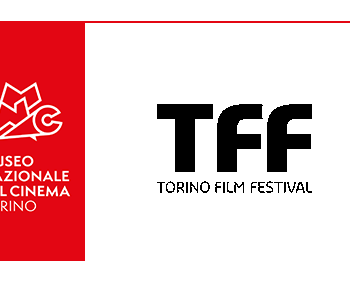Here are the juries of the 43 TFF.
Festival
Juries
FEATURE FILMS COMPETITION

Ippolita di Majo
(Italy)
Trained as an art historian, she has been collaborating with Mario Martone since 2008, with whom she wrote the subjects and screenplays for Il giovane favoloso (Nastro d’Argento Award in 2015), Capri-Revolution (2018), Il sindaco del rione Sanità (Flaiano Award in 2020), Qui rido io (2021) and Nostalgia (2022), both of which won the Nastro d’Argento award for best screenplay. She wrote the story for Fuori (2025), inspired by two novels by Goliarda Sapienza, and co-wrote the screenplay for the film with Martone, which was then presented in competition at the Cannes Film Festival. She also worked on the staging and theatrical adaptation of Leopardi’s Operette morali (2011) and Goliarda Sapienza’s Il filo di mezzogiorno (2021).

Lolita Chammah
(France)
Began her career as a child actress; she performed with Claude Chabrol and Werner Schroeter before receiving her first major role in La Vie moderne (2000) by Laurence Ferreira Barbosa. Since then, she has worked with directors such as Claire Denis, Benoît Jacquot, Coline Serreau, Mikhaël Hers, Marc Fitoussi, and Julian Schnabel. She has also directed shorts with Louis Garrel and Mia Hansen-Løve, and alternates between theatre (Rabbit Hole with Julie Gayet, La Visite by Anne Berest) and television (Transatlantique on Netflix, Carême on Apple TV). In 2024, she published her first novel, J’ai regardé la nuit tomber, which she is adapting for film as its director and star.

Wannes Destoop
(Belgium)
Began studying at the Royal Academy of Fine Arts in Ghent in 2004. A few years later, he received a Master’s degree in Audiovisual Arts. In 2011, his student film Swimsuit 46 won the Jury Prize in the official competition at the Cannes Film Festival, before going on to win many other awards in festivals all over the world. He then directed Billy the Bully, Best Short Film at the Festival of Amiens, and created the series Albatros (2020), which was internationally distributed and won the Prix Europa. In 2024, he directed his first feature film, Holy Rosita, the winning movie at the Torino Film Festival.

Sergei Loznitsa
(Ukraine)
Born in Belarus and raised in Kiev, graduated in mathematics before receiving a degree in directing at the VGIK in Moscow. Since 1996, he has directed over thirty documentaries and five fiction films, all presented at Cannes: My Joy (2010), In the Fog (2012), A Gentle Creature (2017), Donbass (2018, the Directing Prize in the section Un Certain Regard), and Two Prosecutors (2025). His documentaries, which combine footage of current events and recovered archive material, include: Maidan (2014), The Event (2015), Austerlitz (2016), Babi Yar. Context (2021), and The Natural History of Destruction (2022). He founded the production company Atoms & Void.

Giona A. Nazzaro
(Italy)
Is the artistic director of the Locarno Film Festival. A former General Delegate of the International Film Critics’ Week at the Venice Film Festival, he was a member of the artistic committee of the International Film Festival Rotterdam and of Visions du Réel Nyon. He has worked for the Torino Film Festival, the Festival dei Popoli, and the Rome International Film Festival. He has written and curated monographs about Gus van Sant, Spike Lee, and Abel Ferrara. He launched Hong Kong film studies in Italy with Il cinema di Hong Kong – Spade, kung fu, pistole, fantasmi (1997), John Woo – La nuova leggenda del cinema d’azione (2000), and Il dizionario dei film di Hong Kong (2005).
DOCUMENTARIES COMPETITION

Giovanna Gagliardo
(Italy)
Began working as a screenwriter and assistant director for the Hungarian filmmaker Miklós Jancsó, collaborating on movies such as La pacifista (The Pacifist, 1970), La tecnica e il rito (Young Attila, 1972), Roma rivuole Cesare (Rome Wants Another Caesar, 1974), and Vizi privati, pubbliche virtù (Private Vices, Public Virtues, 1976). She debuted as a director in 1978 with Maternale (Mother and Daughter), a psychological and symbolical reading of the mother-daughter relationship, followed in 1983 by the film noir Via degli specchi. In 1991, she directed Caldo soffocante (Suffocating Heat), which inaugurated the Quinzaine des realisateurs in Cannes. Since then, she has been dedicating herself primarily to documentaries. She began working for the Istituto Luce in 2007; in 2024, she presented her tribute to Cesare Pavese, Il mestiere di vivere (The Stressful Art of Living), at the Torino Film Festival.

Orkhan Aghazadeh
(Azerbaijan)
Received a Master’s degree in directing from the London Film School. In 2009, he debuted with the documentary short A Letter to Lenin, presented at the Festival of Leipzig. His graduating short film The Chairs (2018) participated at various festivals (Palm Springs Short, Angers Premiers Plans, Tampere, Brussels, and Poitiers) and received numerous awards. In 2021, his feature-length film The Dress Behind the Wall (The Prisoner), although still under development, was the first Azerbaijani project to be selected by the Cinéfondation of Cannes. In 2024, he directed the documentary Le Retour du projectionniste, which won the award for Best Documentary at the Torino Film Festival.

Gianluca e Massimiliano De Serio
(Italy)
Artists and directors, over the years their fiction films and documentaries have participated at major national and international film festivals and won numerous awards. Their films include: Canone effimero, Special Mention for the Berlinale Documentary Award at the 2025 Berlinale; Spaccapietre (The Stonebreaker), in competition at the Giornate degli Autori in Venice in 2020; I ricordi del fiume (River Memories), an Official Selection at the 2015 Venice Film Festival; Sette opere di misericordia (Seven Acts of Mercy), in competition at the 2011 Locarno Film Festival, where it won the Don Quixote Award and the Junior Jury Award; and Bakroman, Best Documentary at the 2010 Torino Film Festival.
SPAZIO ITALIA | Italian Short Films Competition

Lina Sastri
(Italy)
One of Italy’s top actresses, she has worked with directors such as Lizzani, Loy, Ozpetek, Turturro, Tornatore, Avati, and Woody Allen, performing alongside colleagues such as Giancarlo Giannini, Omar Sharif, Alida Valli, Angela Molina, and Keith Carradine. She has won three David di Donatello awards for Best Actress for her performances in Mi manda Picone (Where’s Picone?, 1984), Segreti segreti (1985), and L’inchiesta (The Inquiry, 1987). One of Eduardo De Filippo’s favorite students, she has performed onstage for Giuseppe Patroni Griffi, Lluís Pasqual, Roberto De Simone, and Armando Pugliese, and also launched a genre of musical theatre featuring Neapolitan music, dueting with Gaetano Veloso, Ray Charles, and Dee Dee Bridgewater.

Paolo Spina
(Italy)
Began working in cinema during the 1990s, after completing his studies at the University of Bologna and the Ipotesi Cinema School of Ermanno Olmi. In 2002, he founded the company Revolver, which is involved in the distribution and international coproduction of movies. He has collaborated with Sokurov, Zanussi, Wenders, Tverdovskiy, the Taviani brothers, Tsukamoto, Ruiz, Gibson, Winterbottom, Villaverde, Naderi, Djordjadze, and Andrei A. Tarkovsky. A number of his coproductions have been selected for Venice, Cannes, Berlin, and Toronto. He teaches international coproduction at the VGIK in Moscow and is a consultant for regional Film Commissions, as well as numerous festivals in Italy and abroad

Sergio Toffetti
(Italy)
Has worked for the National Museum of Cinema and was its president from 2017 to 2019; he has directed the Cineteca Nazionale, and founded and directed the Archivio Nazionale Cinema Impresa. He has been a visiting curator for the Cinémathèque Française and a consultant for Rai Teche, and has collaborated with the French Cultural Center in Turin, the Festival of Pesaro, the Tate Modern in London, the Centre Pompidou in Paris, the Guggenheim Foundation in Venice, the MOMA in New York, and the Biennale Cinema in Venice. He has taught at universities in Paris, Turin, and Rome, and written about conservation and restoration, industrial cinema, and Italian and international authors.
FIPRESCI

Igor Angjelkov
(Macedonia)
Received a degree in journalism and a Master’s degree in Media and Communication from the Ss. Cyril and Methodius University in Skopje. He collaborates with various magazines in his country, writing about cinema, music, and literature. He has been on the juries of several festivals and, since 2018, is the director of the International Festival KineNova of Skopje. He has published four books on film critique, which won the State Prize for publications, and seven nonfiction books.

Paul Risker
(Uk)
Is a contributing editor for “PopMatters” and a member of the consultation committee of “Mise-en-scéne: The Journal of Film & Visual Narration,” the official journal of film studies of Kwantlen Polytechnic University in Canada. His film reviews are published on RogerEbert.com and in “Cineaste Magazine” and “Little White Lies.” He has been described as a philosophically-inclined critic whose writing reflects on life and human nature. A member of FIPRESCI, he has a preference for American movies from the 1970s, psychological thrillers, and crime dramas.

Chiara Spagnoli Gabardi
(Italy)
Film critic, journalist, filmmaker, visual artist, and professor, she collaborates with international newspapers and radio and TV networks. She has moderated conferences for the Japan Foundation of London, as well as for the Cartier Foundation at the Triennale di Milano, and collaborates with the Innsbruck Nature Film Festival. She has created TV formats for Italy and works on American productions, including the docu-series on Paramount+ Murder of God’s Banker. As a visual artist, her Material Puns have been exhibited on four continents. Since 2015, she is chair of Phenomenology of Contemporary Arts at the IED in Milan. Her poetry collection Silent Women has become a podcast.
